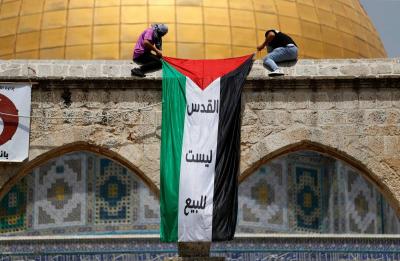There is a type of political fatalism in Lebanon related to always waiting for external solutions to settle the internal crisis at a specific moment. This logic assumes that external understanding facilitates or creates internal understanding or significantly helps in formulating consensus when there is a stubborn crisis. Betting on the outside, whether through an agreement or the victory of an ally or friend, presupposes, according to this Lebanese political fatalism, that it will reflect in shaping the internal solution. We say this because we are witnessing today, despite the very difficult circumstances Lebanon has been experiencing since the acute financial crisis exploded—resulting from years of unrealistic and irresponsible policies affecting depositors' funds and their repercussions on people's daily lives across all sectors. The logic of waiting remains dominant. Whether this waiting is shared by everyone or by the parties controlling the internal political game at a certain moment—who hold the power of veto against any trend that does not meet their acceptance.
The Israeli war on Gaza and the direct correlation of the Lebanese front with the Gaza front—under the banner of solidarity with the Palestinian cause through engaging the Israeli enemy, as announced by Hezbollah from the first day of the war; aimed at alleviating pressure on the sector in the genocide that Israel is waging against it—have made the reconstruction of the executive authority in Lebanon (electing a president after fifteen months of presidential vacancy) and forming a government a matter postponed indefinitely, regardless of the titles or justifications given for this delay.
The risks of the ongoing war in Gaza and along the southern Lebanese front persist, despite the existing rules of engagement still regulating the ongoing war; as no one has the decision to enter into an open war that would have very serious repercussions. These rules of engagement have witnessed a three-dimensional balanced escalation (in geography, objectives, and firepower), yet they still shape the ongoing fighting. However, the economic cost for a country that is already weakened and has been living a severe financial, economic, and social crisis for nearly four years is significant, increasing by about two billion dollars in the first 100 days, as several economists observe; due to the direct or indirect losses incurred by various production sectors. A country where, since the explosion of the financial crisis, around 70% of families are unable to afford basic living necessities, and this percentage is continuously rising... and of course, the longer the days of war last, the more these losses accelerate over time.
This occurs, as we indicated, during a time when the Lebanese economy is suffering from substantial crises. Structural reforms are more than necessary for the Lebanese economic model, and remedies no longer serve the purpose or even delay its various and increasing repercussions over time on everyone. There is an urgent need to develop a social safety net, as well as to invest in both the social and productive sectors. It should be noted that the financial crisis and what has happened fundamentally reflect a crisis in the economic model that urgently needs fundamental reform. This also requires political reform and constructing an institutional state instead of one dominated by the logic of political sectarianism and clientelism—logic that nurtures and feeds on the personalization and sectarianism of power.
The need for reform today has become more than necessary, as is the need to crystallize a new social contract and a comprehensive, multidimensional development plan. Therefore, it is imperative to move towards reassembling the authority today before tomorrow, to end the deadly vacancy, and to engage in dialogue to develop a comprehensive structural reform program that has become more than essential. What is required is not dialogue about titles, but about substance, about the necessary steps to proceed with the reform in the national rescue process. A plan that serves as an action program for the president, whose election is overdue, to end the lethal vacancy, and to form what is known in crises as a "government of urgency," which acts as a team with the president to initiate the wheel of gradual structural and comprehensive reform.
In light of pressing internal obligations and the need for rescue reforms today before tomorrow, and amid the obligations arising from strategic developments nearby and regionally as well as politically, it is essential to eliminate the deadly vacancy through forming a wise, visionary leadership capable of steering the "national ship" in a tumultuous Mediterranean East; because everyone stands to lose if, God forbid, that ship sinks due to the absence of a captain. Waiting for an antidote from the outside, while acknowledging the supportive role of external factors, practically means slow death, collapse, or self-destruction.




